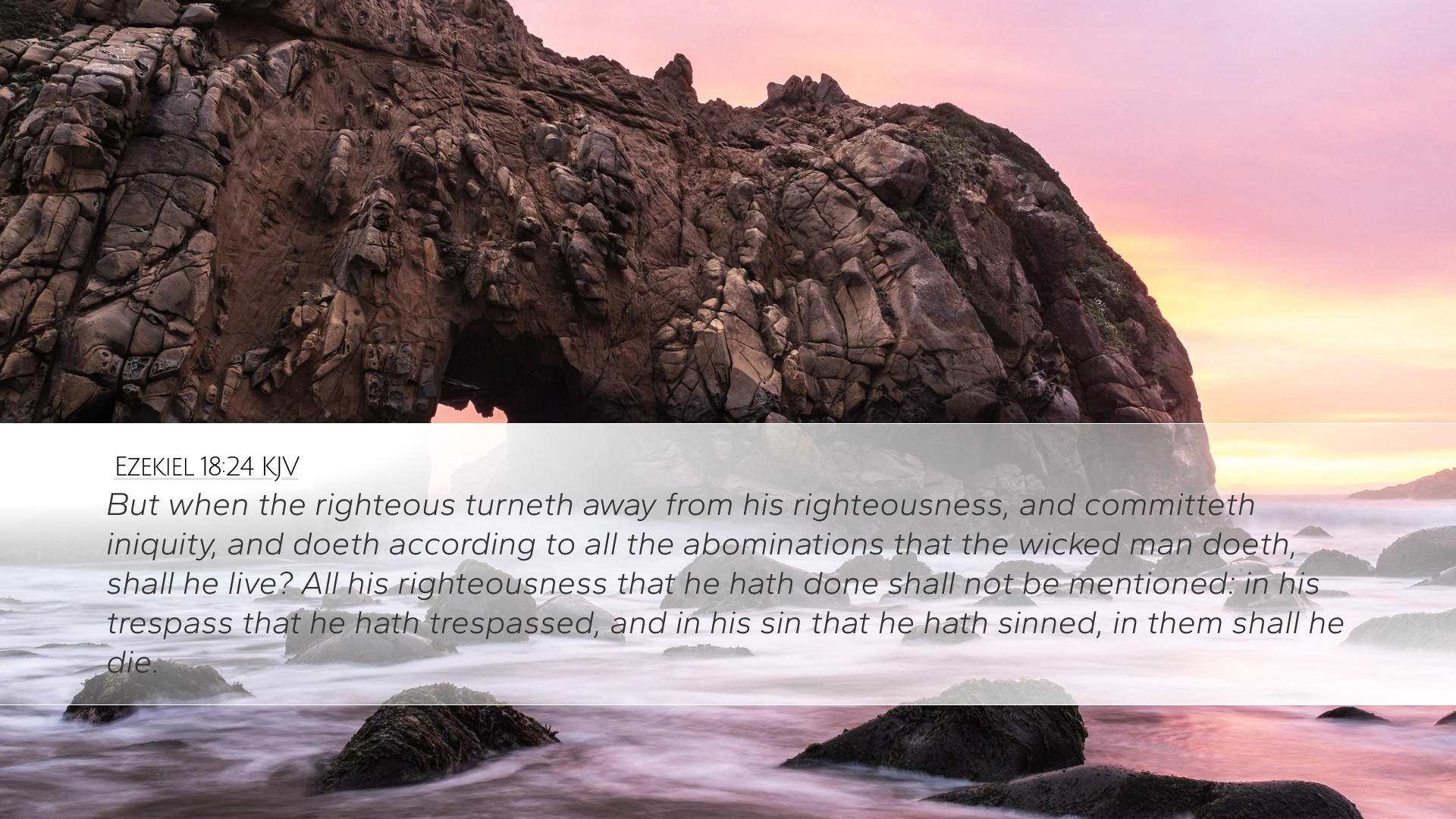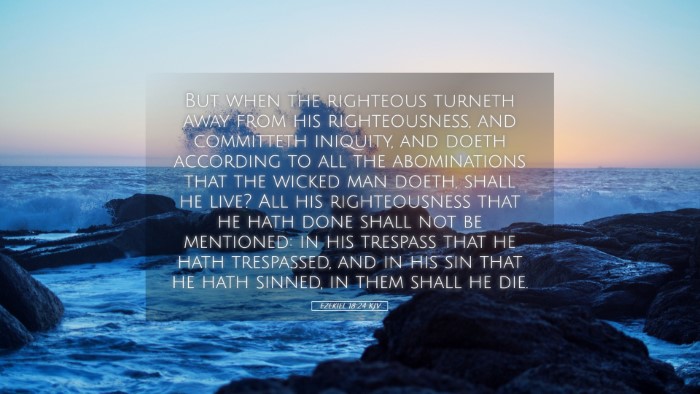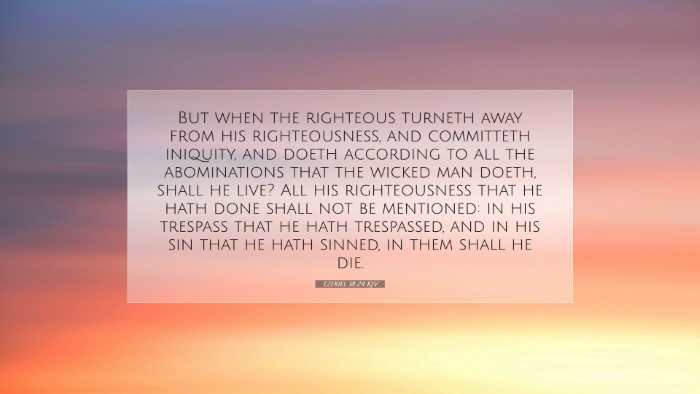Ezekiel 18:24 - Commentary Summary
Verse: "But when the righteous turneth away from his righteousness, and committeth iniquity, and doeth according to all the abominations that the wicked man doeth, shall he live? All his righteousness that he hath done shall not be mentioned: in his trespass that he hath trespassed, and in his sin that he hath sinned, in them shall he die."
Introduction
This verse from Ezekiel offers a profound reflection on personal responsibility and the dynamic nature of righteousness and wickedness. In this commentary, we will explore insights from several public domain sources, including Matthew Henry, Albert Barnes, and Adam Clarke, to provide a thorough understanding suitable for pastors, students, theologians, and Bible scholars.
Contextual Analysis
Ezekiel, a prophet during the Babylonian exile, portrays God's judgment upon Israel's sins and communicates the concepts of individual accountability and the possibility of repentance. Chapter 18 specifically addresses the misconception among the Israelites that they were doomed because of their ancestors' sins.
Matthew Henry emphasizes the principle of individual accountability, indicating that one's relationship with God is not inherited but is instead determined by one's actions. He articulates that no previous righteousness can shield a person from judgment if they turn to sin.
Albert Barnes points out that the righteous man, when he turns to iniquity, forfeits his previous merits. He asserts that God's dealings are just and based on current actions, rather than past adherence to righteousness. Barnes highlights the severity of the consequences emphasized by Ezekiel, underscoring a divine justice that treats all individuals as responsible for their own conduct.
The Nature of Righteousness and Wickedness
In this verse, the transition from righteousness to wickedness raises critical theological questions regarding salvation and grace. Adam Clarke notes that a righteous person, upon turning away from his righteousness, faces significant spiritual peril. He delves into the nature of human free will and God’s justice, exploring how the choices of individuals shape their destinies.
Key Insights
- Individual Responsibility: Each person is accountable for their actions, regardless of past righteousness.
- The Irrevocability of Choices: Turning away from righteousness has serious implications; past merits are rendered void.
- The Nature of God's Justice: God’s judgments are always fair, holding individuals accountable according to their current state.
- The Call to Perseverance: The verse serves as a warning to remain steadfast in faith and righteousness.
Theological Implications
The discussion regarding whether a righteous person who turns to sin can ever regain their standing is crucial for theological discourse. Matthew Henry insists that the text illustrates that salvation is not assured based merely on previous good deeds. Clarity on this matter is essential for understanding grace and repentance within Christian theology.
Albert Barnes elaborates on the notion of repentance, suggesting that while previous righteousness does not guarantee future security, genuine repentance can restore one's relationship with God. The verse, therefore, emphasizes a continuous need for vigilance against sin.
Practical Applications
For pastors and church leaders, this verse underscores the importance of preaching grace while also acknowledging the profound consequences of sin. The balance between the assurance of salvation and the call to a holy life must be maintained in ministry. Here are several practical applications:
- Teaching Repentance: Emphasize the necessity of ongoing repentance in the life of believers.
- Encouraging Accountability: Foster a culture within the church that encourages accountability among members.
- Highlighting God's Justice: Help congregants understand the nature of God's justice and His expectations of holy living.
- Promoting Spiritual Growth: Encourage believers to grow in their faith and righteousness continually, rather than resting on past accomplishments.
Conclusion
Ezekiel 18:24 serves as a stark reminder of the vital importance of personal righteousness and the perils of moral decay. By incorporating insights from historic commentaries, we can foster a deeper understanding of scripture and its implications for our faith and conduct. This verse calls for reflection on individual responsibility and the ever-present opportunity for repentance.


